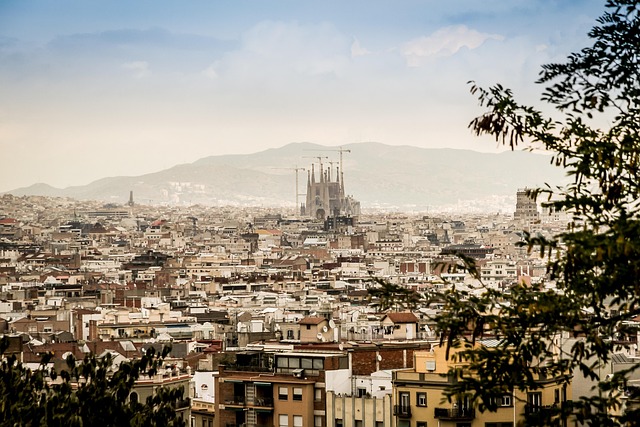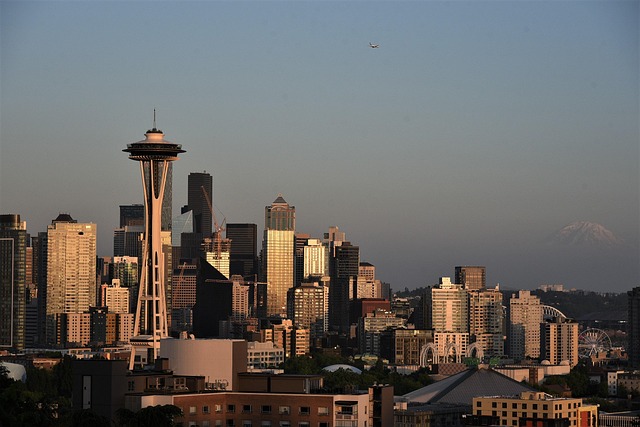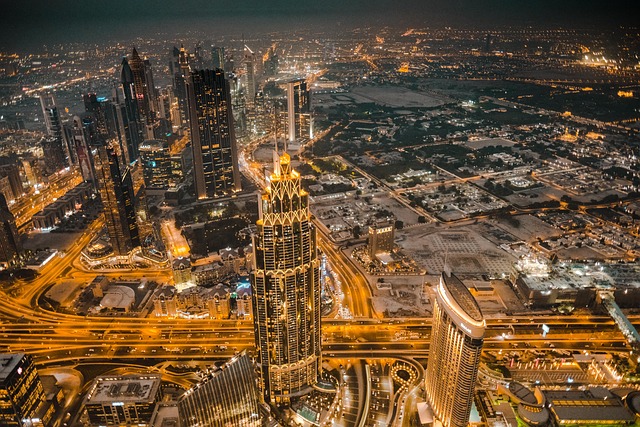
Karachi's severe waste management issues stem from urbanization and population growth, leading to illegal dumping and air pollution. Malir sector excels with community recycling and composting initiatives. Smart bins and advanced sorting facilities emerge as innovative solutions. Local programs engage residents in door-to-door collection and education for sustainable practices. Future strategies should focus on enhanced recycling infrastructure and community partnerships to create a greener Karachi.
Karachi, Pakistan’s vibrant metropolis, faces significant challenges in waste management due to its bustling nature and rapid urbanization. This article delves into the intricate issues plaguing the city’s garbage disposal system, focusing on the district of Malir as a model for sustainable practices. We explore innovative solutions enhancing efficient waste collection, examine community efforts in recycling, and discuss future strategies aiming to transform Karachi into an eco-friendly urban center. By highlighting these initiatives, we hope to inspire effective change across the metropolis.
- Karachi's Waste Management Challenges: An Overview
- Malir's Role in Sustainable Disposal Practices
- Innovative Solutions for Efficient Waste Collection
- Community Engagement in Recycling Efforts
- Future Strategies for Eco-Friendly Karachi
Karachi's Waste Management Challenges: An Overview

Karachi, Pakistan’s largest metropolis, faces significant challenges in waste management due to its rapid urbanization and growing population. The city generates an enormous amount of solid waste daily, primarily consisting of plastic, paper, metal, and organic matter. However, inadequate collection systems, poorly managed landfills, and limited recycling infrastructure exacerbate the problem.
The lack of a comprehensive waste management strategy has led to severe environmental consequences. Illegal dumping sites across Karachi not only pollute the city’s landscape but also pose health risks to residents. Additionally, open burning of waste releases harmful gases, contributing to air pollution levels already considered critical. Addressing these challenges requires collaborative efforts from local authorities, private sector partners, and citizens to implement sustainable solutions, such as efficient collection routes, modern recycling facilities, and public awareness campaigns, that can transform Karachi’s waste management narrative.
Malir's Role in Sustainable Disposal Practices

Malir, a bustling area in Karachi, has been at the forefront of pioneering sustainable disposal practices in Pakistan. The locality’s proactive approach to waste management is transforming the way the city handles its refuse, setting an eco-friendly example for other urban centers. Through innovative initiatives and community engagement, Malir residents have embraced recycling, composting, and responsible waste segregation, significantly reducing their environmental footprint.
These efforts have not only contributed to a cleaner and healthier Karachi but also created employment opportunities in the green sector. The successful implementation of these practices in Malir serves as a blueprint for other areas across the city, demonstrating that sustainable disposal isn’t just an option but a necessary step towards a greener future for all of Karachi.
Innovative Solutions for Efficient Waste Collection

In the bustling metropolis of Karachi, efficient waste management is a complex challenge. However, innovative solutions are emerging to enhance collection services. One such approach involves implementing smart sensors and IoT (Internet of Things) technology in bins to optimize collection routes and schedules. These intelligent systems can detect when bins are full and communicate this data to collection vehicles, reducing unnecessary trips and optimizing operational efficiency.
Additionally, the adoption of advanced sorting facilities is gaining traction. These facilities employ mechanical and manual sorting methods to separate recyclables from general waste, increasing the city’s recycling rate. With these innovative solutions, Karachi is moving towards a more sustainable future, where efficient waste collection reduces environmental impact and fosters a cleaner, healthier city for its folks.
Community Engagement in Recycling Efforts

In the bustling metropolis of Karachi, effective waste management is not just an environmental necessity but a communal responsibility. Community engagement plays a pivotal role in recycling efforts, fostering a culture of sustainability among residents. Local initiatives often involve door-to-door collection programs where community members actively participate in sorting and segregating recyclable materials. These efforts are further strengthened by educational campaigns that raise awareness about the environmental impact of proper waste disposal.
The involvement of schools, NGOs, and local businesses in these recycling drives adds a multi-faceted approach to waste management in Malir, Karachi. By integrating eco-friendly practices into daily life, the community not only reduces the amount of waste reaching landfills but also contributes to a cleaner, healthier environment. This collective action is a testament to the potential of community engagement in transforming urban waste management landscapes.
Future Strategies for Eco-Friendly Karachi

Karachi, as Pakistan’s bustling metropolis, faces significant challenges in waste management. However, looking ahead, there’s a promising shift towards eco-friendly initiatives. Future strategies should focus on enhancing recycling infrastructure and promoting community involvement to create a sustainable waste management system. By encouraging the segregation of organic and recyclable materials at source, Karachi can reduce its environmental footprint.
Technological advancements offer hope; smart waste management solutions like IoT sensors for real-time bin filling data or AI-driven route optimization for garbage collection trucks could revolutionize the process. Moreover, partnerships between local authorities, private entities, and NGOs are crucial to implement green initiatives, educate citizens, and foster a culture of responsible waste disposal in Karachi.
Karachi, with its unique challenges and diverse communities, is taking significant strides towards sustainable waste management. The initiatives in Malir district serve as a model for eco-friendly disposal practices, while innovative solutions are transforming efficient waste collection into a reality. Community engagement in recycling efforts highlights the collective consciousness emerging across the city. Looking ahead, Karachi’s future strategies promise an even greener horizon, ensuring a cleaner and healthier environment for its residents through sustainable practices.




